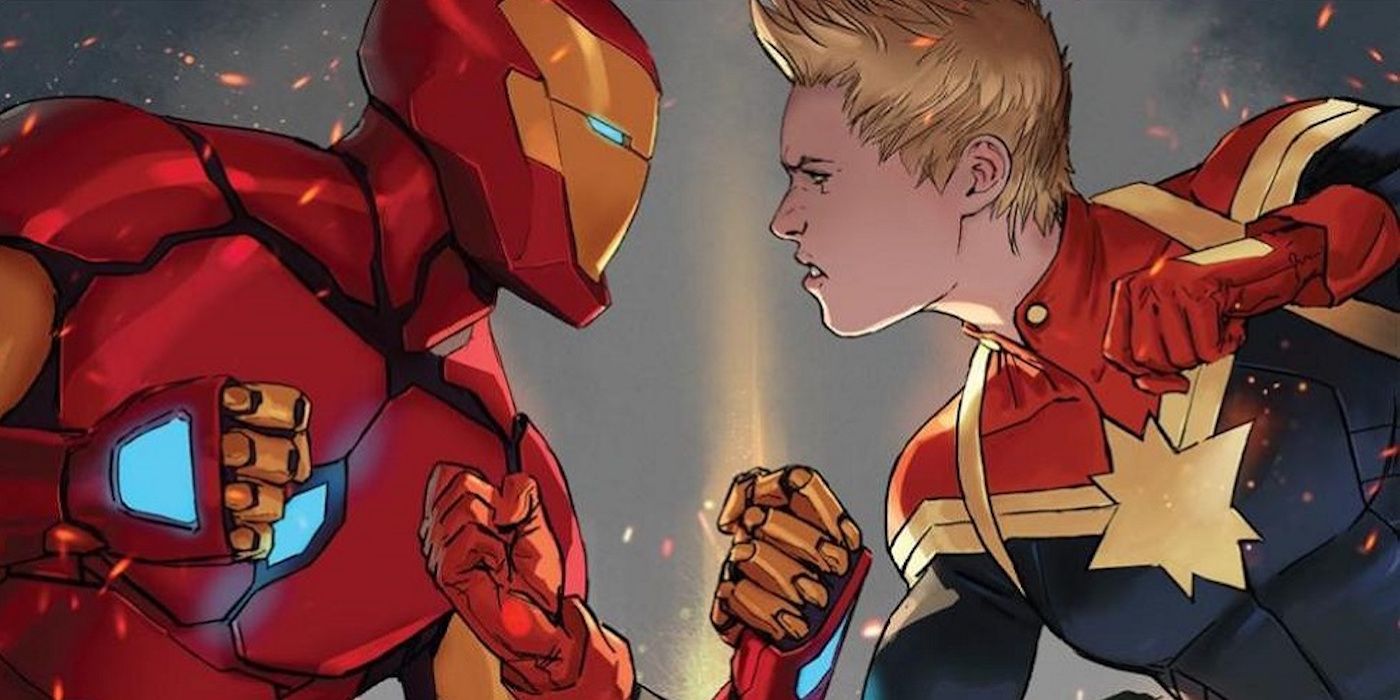On paper, Civil War II sounds like a good idea. After all, the Marvel crossover event, itself a sequel to Civil War, coincided with the release of Captain America: Civil War, which adapted the events of the first storyline. However, Civil War II failed to live up to the heights of its predecessor, which remains itself a controversial story arc. While comic books are littered with underwhelming follow-ups to beloved or popular stories, Civil War II crossed the line from bad sequel to one of the most fan-scorned works in recent Marvel history.
The premise of Civil War II, written by Brian Michael Bendis and illustrated by David Marquez, is essentially Minority Report with superheroes. A young Inhuman named Ulysses Cain emerges, apparently able to predict the future. After an attack on Thanos leaves both War Machine and She-Hulk apparently dead, Captain Marvel decides to utilize Cain's visions with military efficiency, pitting her against Tony Stark, who argues against the ethics of fate versus free will. Iron Man later discovers Cain's visions are based on probability - not prophecy - but this does little to dissuade Captain Marvel, resulting in a battle between Captain Marvel's allies and Iron Man's forces over Ulysses Cain. Ultimately, the conflict comes to a head with Captain Marvel apparently killing Iron Man, only for Ulysses to be recruited by Eternity and become a new cosmic being.
Related: Marvel's Newest Superhero Added to Civil War Canon
First off, Civil War II suffers the same problems of Civil War - a lack of nuance. Much like Civil War, the characters are reduced to talking points, with Captain Marvel championing the determinism of Cain's abilities, while Tony Stark is the advocate of free will. With the exception of a few scenes here and there, however, the characters aren't shown to be well-rounded or complex, since all the drama hinges on Carol and Tony going to war. C0mpare this to the quieter scenes of superior adaptation of Captain America: Civil War, such as when Black Widow comforts Steve at Peggy's funeral, which highlights the characters' relationship rather than their viewpoints.
Beyond the heavy-handed politics, Civil War II also suffers from heavy-handed plotting. The normally calculating Thanos attacks largely because the plot demands it, and not because of any larger overarching plan. The fan-favorite couple of War Machine and Captain Marvel is only on hand to push Carol to the extreme in the aftermath of her lover's death. Even Tony Stark's death at the hands of Captain Marvel feels strangely inconclusive like Marvel wasn't quite sure what they wanted to do with the character going forward.
By far the biggest victim of Civil War II, by far, is Captain Marvel herself. Civil War II was clearly designed to spotlight her character ahead of her own big-screen solo debut a few years later, yet the storyline does her absolutely no favors. Indeed, many of Captain Marvel's detractors point to this storyline exclusively as to why they believe she makes for a poor superheroine. While this dim view of Captain Marvel is oversimplified at best (especially considering most of Captain Marvel's characterization take place outside of her own, much-better-regarded solo series), it is extremely perplexing that Marvel would choose to spotlight one of their rising stars in such an unflattering and antagonistic role.
Overall, Civil War II is hated by fans because it not only makes the same mistakes as its predecessor but also adds to them. The storyline stands as a frustrating example of what can happen when market synergy gets in the way of good story-telling. While the events of Civil War II would be overshadowed by equally controversial crossovers like Secret Empire and several others in the near future, it remains one of the worst regarded story arcs in recent memory.


